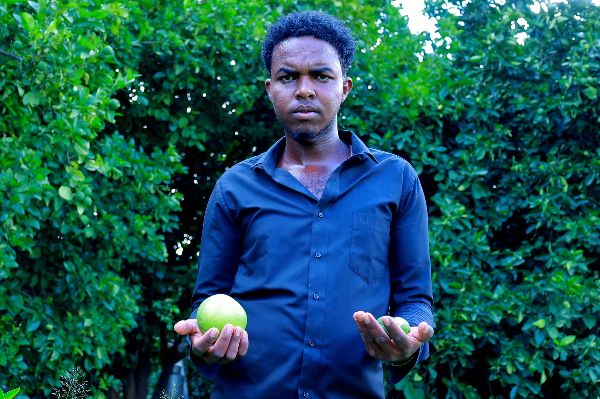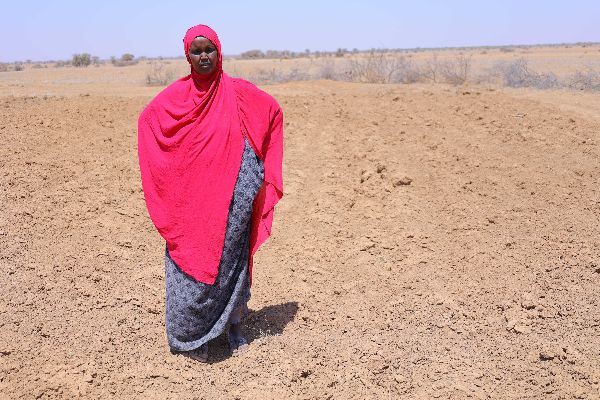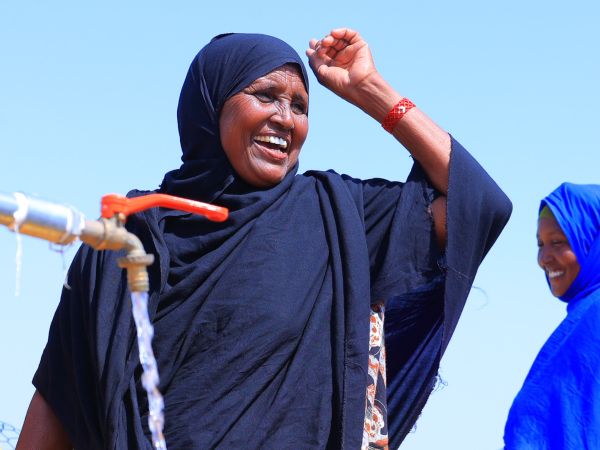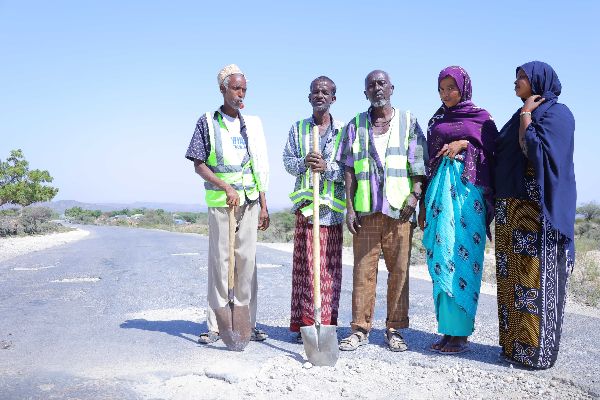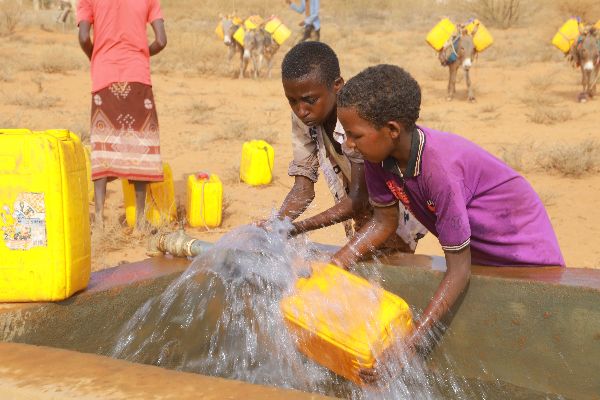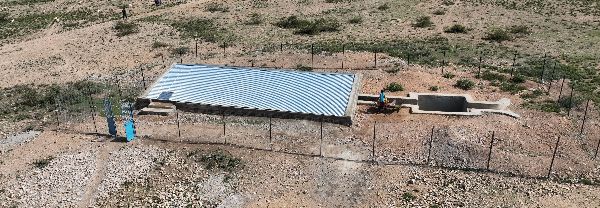
Long Water Treks Are Over for Asha
Asha Abdi Omer, 30, a mother of seven children, has lived in Tuur Anood, Dilla district, since she was born and understands what it is like to live with limited access to water. Her face lights up when she talks about water now. Looking back, the state of water in her village was dire. She and several other families in her community would walk for at least two hour each day to the nearest water source.
I had to walk 10 km on an arduous journey under the blazing sun every day just to collect four jerricans of water for basic usage like drinking and cooking and rarely for washing and bathing. Imagine a family of nine with that little amount of water. I also didn’t have good time to feed my babies," says Asha, recalling days of long treks in search of water. Hours lost each day culminate into weeks lost each year.
All of that changed when in 2022, through the SDF-funded Sustainable Land Management Project (SLMP), implemented by the Ministry of Agricultural Development (MoAD), a decade-old derelict water berkad [underground water reservoir used in arid areas to collect surface runoff water during the wet season for use in the dry season] was rehabilitated in Asha’s locality for the community to be able to harvest water during the rainy season. Because of the rains in August and September, Asha and her fellow villagers now have water in their berkad which is close to their homes.
Asha is excited to talk about water because the rehabilitated berkad is just in front of her homestead. "No more long treks. I can spend time taking care of my family, especially the newborn baby that needs me the most. I can now use water for multiple purposes without fear of running out. It is like the berkad is meant for me."

Asha's fellow villager, Khadijo Jama, 50, has a similar experience and reflects on the water brought near her house: "It is just one minute walk to get water and we can get it anytime of the day." She now has sufficient time to work on her farm and aim for produce. Women in this village are now feeling the difference. Not only do they have more time, but they have readily available water nearby which helps with cleaning and washing.
Asha has also received seeds and tractor-hour assistance for her farm through the SLMP's water and soil water conservation component. Furthermore, soil bunds were laid near her farm using cash-for-work to help retain water and prevent soil erosion for improved crop production. She expects to harvest cash crops from her farm this month.







